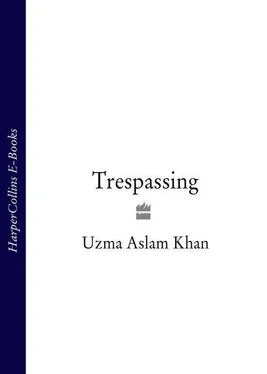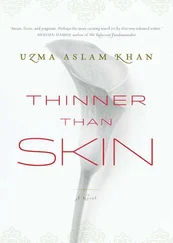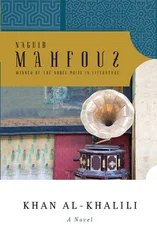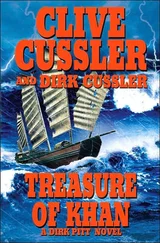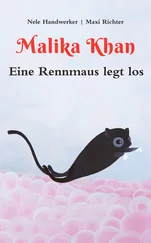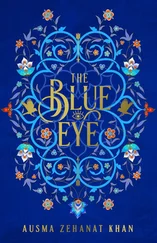She rose from his bed, clasping the boxes and the guipure bedcover. It flowed all the way down to her feet like a net with which to get her boy back.
Hours after the doctor stopped calling, Anu found him in a cold heap on the floor.
At the hospital, she sat outside Intensive Care while his family arrived, weeping. The nurses would not allow her inside. What did they know about intensive care?
‘Why didn’t you call us?’ the sisters charged, as if she had eight different sets of hands with which to dial the phone. She’d made one call, and that to her brother, which was how the doctor made it here at all. The sisters hugged her, piling on accusations, demanding to be comforted. ‘Why didn’t you bring him earlier?’ another insisted. ‘How long had Bhai been unconscious?’
Anu went through the motions: she’d been upstairs cleaning, how could she have known? She’d heard nothing. One minute he was watching Hindi films, the next he was on the floor. Who can say what the future holds? The Almighty decides.
Privately, she prayed the Almighty would decide in her favor, forgiving her for ignoring her husband’s last call, and for lying about it now.
The walls of the corridor were pasted with gray fingerprints and red paan stains. Two feet away, a man was hawking in a toilet. She could hear the unbuckling of a belt, the pants fall, shit drop. The air was pungent and stale. Not a window in sight.
Before they shut the door on her, she’d seen the sheets on his bed were stained before he even lay down. Clumps of hair and dust tumbled on the floor like weed. The ceiling fan rattled loud enough to wake the dead — but not the comatose. The nurses had long, black nails. She looked with horror at the unpacked needles and gloves. Bottles of antiseptic lay uncovered.
Anu walked down the corridor. The lights went out. A generator came on. She braced herself for a long wait. To wait is to watch yourself grow old. Earlier today, she’d told herself this. Now here she was, no longer waiting for the doctor to adore her, but waiting, instead, for him to merely live.
Still, there was no harm in remembering those first few weeks after Daanish’s birth, when he’d cherished her.
The delivery had been arduous and she returned from the hospital too weak to cook. Her husband advised complete bed rest. He refused hired help, taking extended leave from the clinic to nurse and feed her himself.
The fare was one month-long meal for he knew only two dishes: khichri and mutton korma. He even thought to prepare the meals in their bedroom, carrying the materials to her dressing table, where, for the first and last time in his life, he allowed her to watch over him. He said it was this opportunity to supervise and not the bed rest that would revive her.
She smiled indulgently at his disorder, as Daanish lay tight in her arms. So complete was the baby’s need that she was washed clean of any desire to direct the doctor. She choked down the coarsely chopped, slippery globs of onion that littered the gravy, the rubbery meat, and glutinous rice that was saltier than the sea. She knew the reasons for all three: he should let the onions char; the butcher was cheating him; when he washed and sifted the lentils and rice, he cleaned with such vigor he removed most of the good grains too, but then forgot to adjust the spices and reduce the cooking time. At times, she worried for the child: how did the milk taste and would it affect his temperament? But the doctor was so earnest in his care his mistakes made him more endearing to her than he’d ever been, or ever would be again. It was while he sifted the lentils that she loved him most. Something in the way he churned the grains with a metal spoon as they soaked, for not long enough, in a large plastic bowl. The chink of wet seed against steel. The snaking drift of liquid as it ebbed and trailed after the spoon. The black specks that surfaced. Him flicking them out, clumsily taking shiny golden ones too. She understood him then, for as a girl, she’d done the same. It was sharing, with him, and the baby, each differently but at once, that eventually revived her, though neither father nor son would ever know.
Many times thereafter, she recalled the happiness of those bed-ridden days. At first, the memory brought intense, private hope, for the fulfillment of which she was determined to wait. But gradually, it filled her with something else. Hope obstructed the passage of the strength she needed to accept the direction her life was taking. She had to make room instead for endurance and God’s will. At what point in her life did this process begin?
Strolling down the grubby halls of the hospital, she paused at one of the dust-opaque windows and smelled smoke. Outside, somebody burned litter. She stood, wondering whether to return to her in-laws or breathe the noxious fumes. She decided to stay here awhile.
If she tried, it was possible to put a date to the day hope left her. In effect, three dates — on the first, almost leaving; then burning brighter than ever before; and at last extinguishing entirely.
The first was during a grand luncheon at an old British-established club. Seated around a table at the center of the dining room were ten intellectuals and their highly clipped, coifed and choreographed spouses. While all the other wives were shown a menu, the doctor ordered for her. It was a western dish she’d had once before and disliked. He knew this. She said nothing.
The club was frozen in time. On the walls hung portraits of Winston Churchill. The billiard room forbade entry to ladies and dogs. Waiters were called ‘bera’ from the British word bearer. They wore the same starched white turban, shirt and trousers as they had under the colonizers. Some of the uniforms were so stained and tattered the doctor would say that one day a delegation of nostalgic British historians would snatch and turn them into antiques in one of their museums. The waiters would never get a penny and they’d be naked.
Six years had passed since the nation’s first polls, which had coincided with the year of Daanish’s birth. The election results had not been honored. The country had lapsed into a civil war and lost half its territory and population. One of the men present at the lunch was a third generation Iranian who still mourned the loss of his tea plantation. He lit a cigar and reminisced.
Anu looked around the table, remarking the pedigree of each. Some had two drops Persian, others half a drop Turk. There was one who claimed his ancestors had sprung from Alexander the Great, and another had roughly one teaspoon Arab. But none had descended from Mahmud of Ghazni, as she had. She bore the stamp of the tribe with pride: the clear, fair complexion and the bloom on her cheeks.
She was momentarily taken aback when the Iranian began bemoaning the very activity that consumed her, and one which the doctor often resented her for. The cigar-puffing gentleman said, ‘We will always be divided. We’ll always be Punjabi, Pathan, Pukhtoon, Muhajir, Sindhi, or what have you. But we will never be united. The Quaid’s dream is slipping from our fingers. Our children won’t even know he had a dream. They won’t know why they’re here. They will be rootless.’ He peeled open a napkin and arranged it over a heavy heart.
‘It’s your weak morale that will tear us apart, Ghulam,’ said another, a Hyderabadi with dark, pockmarked cheeks. ‘You mustn’t let your sons see you this way.’
‘But Ghulam is right,’ said a third, from UP. ‘Things are only getting worse. At least once we had a great university in Aligarh. Now what is there? Will we be forced to send our children away from us?’
‘We have nothing to fear,’ declared a Punjabi. ‘Islam unites us.’
Читать дальше
Конец ознакомительного отрывка
Купить книгу
